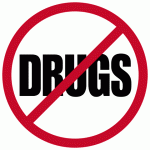Childhood Vaccinations: Shots or Not…You Decide

First, the benefits of vaccinations. We all know that childhood vaccines are administered with hopes of preventing disease. For example, the Centers for Disease Control reports that the United States alone experienced more than 21,000 paralyzing cases of polio in 1952. In 1955, the polio vaccine became available. Between 1955 and 1965 more than 95 million polio vaccines were administered in the United States. As a result, the last naturally acquired case of polio in the United States was reported in 1979. The near eradication of polio represents a true benefit of childhood vaccinations. Another example of conquering disease with vaccinations is smallpox. According to the CDC, The eradication of smallpox worldwide has been so successful that it is no longer recommended to receive the vaccination. More information on the benefits and risks of vaccines can be found by visiting the Centers for Disease Control at www.cdc.gov.
So, how could anyone argue with simple childhood shots in return for disease eradication? Well, there are many who do. An increasing number of parents against childhood vaccinations are speaking out about the dangers they feel are associated with routine vaccines. A concern noted by many anti-vaccine groups is an ingredient used in vaccines until 1992 called thimerosal. Thimerosal contains mercury, a known toxic substance, which some professionals and parents believe is linked to ever-increasing rates of autism in the United States. Some theorize that the cumulative effect of childhood vaccinations and repeated exposure to mercury can be toxic enough to cause autism, developmental disabilities, and other serious health problems.
If you choose not to vaccinate your children, be prepared to experience opposition along the way. Many anti-vaccine parents report difficulties with doctors, schools, and other institutions. Many states require exemption forms in order to legally exclude your child from vaccinations, and to allow them in public schools. Vaccine Liberation, a grassroots group against childhood vaccinations, offers articles about the dangers of vaccines, and information on how to obtain a vaccine exemption in many states. Visit www.vaclib.org for details.
Ultimately, every parent must decide for or against childhood vaccinations. In order to make the right decision for your family you must be informed about both sides of the debate on childhood vaccines. So before you decide if your tots need shots or not, study the facts and ask your pediatrician.






